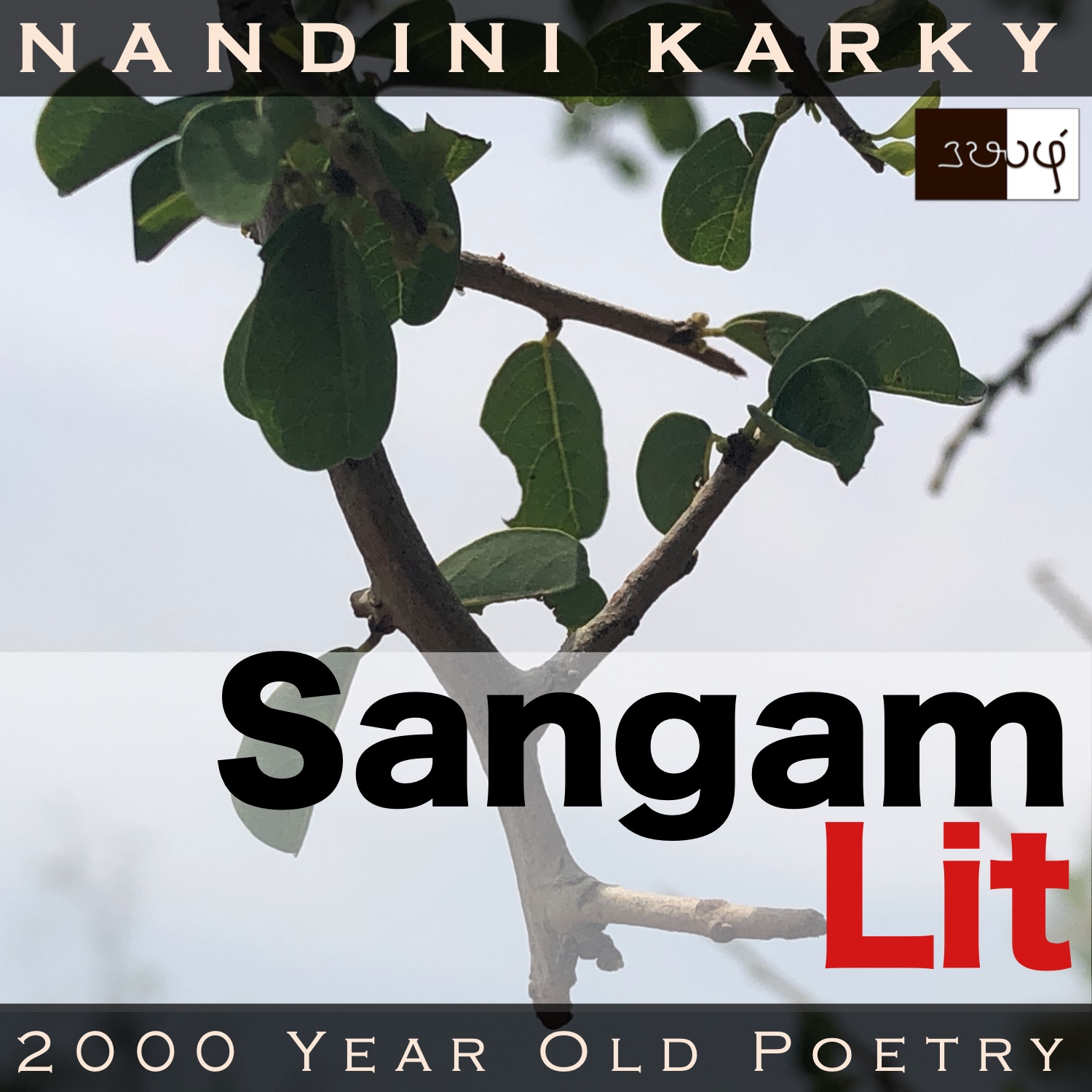Podcast: Play in new window | Download
Subscribe: Apple Podcasts | Spotify | Amazon Music | Android | iHeartRadio | Email | TuneIn | RSS | More

In this episode, we perceive the magnanimity of a lady, as depicted in Sangam Literary work, Kurunthogai 10, penned by Orambokiyar. The verse is situated in the agricultural regions of ‘Marutham’ and speaks in the voice of the confidante to the man, allowing him entry into the lady’s house.
யாய் ஆகியளே விழவு முதலாட்டி;
பயறு போல் இணர பைந் தாது படீஇயர்
உழவர் வாங்கிய கமழ் பூ மென் சினைக்
காஞ்சி ஊரன் கொடுமை
கரந்தனள் ஆகலின், நாணிய வருமே.
Déjà vu, the feeling of having heard this before, hits home! It was only in the previous verse that we encountered the same opening words ‘யாய் ஆகியளே’ meaning ‘a mother, she turns’. When we are pondering whether the poems have been repeated in error, this verse takes on its own identity and talks about ‘பயறு’ referring to ‘green gram lentil’ and ‘பைந் தாது’ meaning ‘fresh, green pollen’. The primary inhabitants of this region greet us in ‘உழவர்’ or ‘farmers’. ‘கமழ் பூ மென் சினை’ sketches in our mind’s eye, ‘a soft branch bearing fragrant flowers’. Yet again, the thoughts we saw in Kurunthogai 9 appear in ‘கொடுமை’ or ‘cruelty’ and ‘கரந்தனள்’ meaning ‘she hid it’. Still, the verse chooses a different end in ‘நாணிய வருமே’ meaning ‘a welcome that will bring shame’ and intrigues us!
As we recently explored, the man and lady had been leading a married life, when the man took to keeping the company of courtesans. After a while, the man returns to his home and seeks entry through the confidante. To him, the confidante says, “Mother-like, she becomes, the one who is the reason for all festivities in the man’s life; Desiring to make green-gram-like, fine pollen fall on them, the farmers bend the fragrant-flowered gentle branch of the ‘kaanji’ tree, in the man’s town. Hiding the pain of his cruelty within, making him bow in shame, here the lady comes to welcome him.” With these words, the confidante points out the hurt the man has caused and how he might be saved, all thanks to the lady’s noble nature.
Indeed, it’s a path that we have walked on before but if we look with mindfulness, we can discover the spectacular even in the familiar. The confidante mentions how the lady, whom she describes as the sole reason for the man’s wealth and prosperity, has become mother-like in her ways. Then, to describe the man’s town, she talks about the fine pollen of the ‘Kaanji’ tree, also called as the ‘False teak tree’. The flowers of this tree hang down in droopy clusters and the confidante mentions how wanting to take a shower in their fragrance, farmers bend the branch of this tree that grows by the river. From this delightful little scene in their farming town, she turns to talk about the man’s cruelty to the lady and at the same time, reveals how the lady hides her pain from others. Making the man bow in shame, here, that good lady comes to welcome him, the confidante concludes.
Why would this welcome bring shame to the man? Akin to the farmers, who are coated in the pollen of the ‘Kaanji’ tree, the man too arrives with the scent of being with the courtesans, the confidante implies. And yet, forgetting the cruelty of her man, in abandoning her, the lady was there to welcome the man. Now, it becomes clear how when the man sees the goodness of the lady, he would be ashamed about his erring past. The verse seems to echo the thought in one of my favourite Thirukkural couplets:
‘இன்னா செய்தாரை ஒறுத்தல் அவர்நாண
நன்னயம் செய்து விடல்.’
which means
‘To punish those who have done you wrong,
make them ashamed by doing good to them.’
What a benevolent strategy that eschews the ‘eye for eye’ mentality and shows the path to thoughtful resolution, be it within the confines of a home or in conflicts between nations!




Share your thoughts...